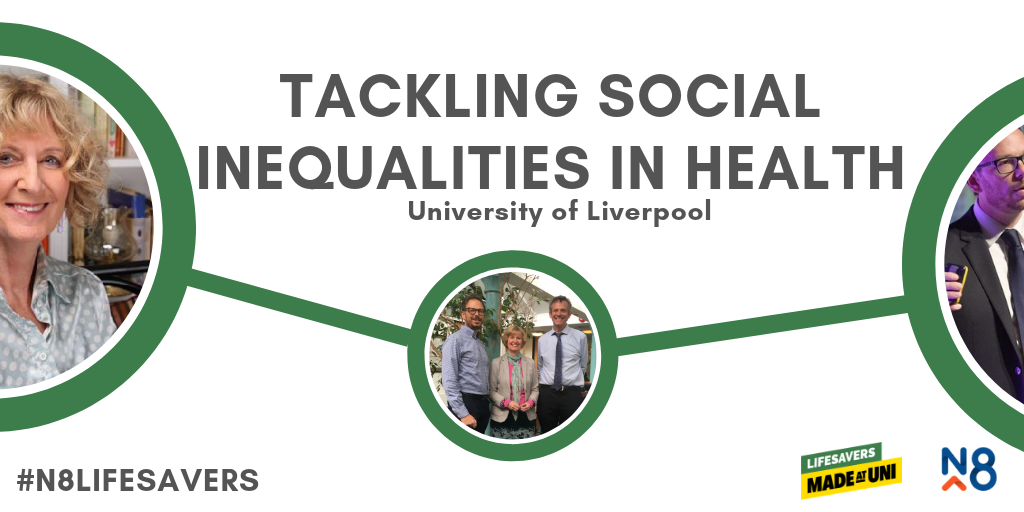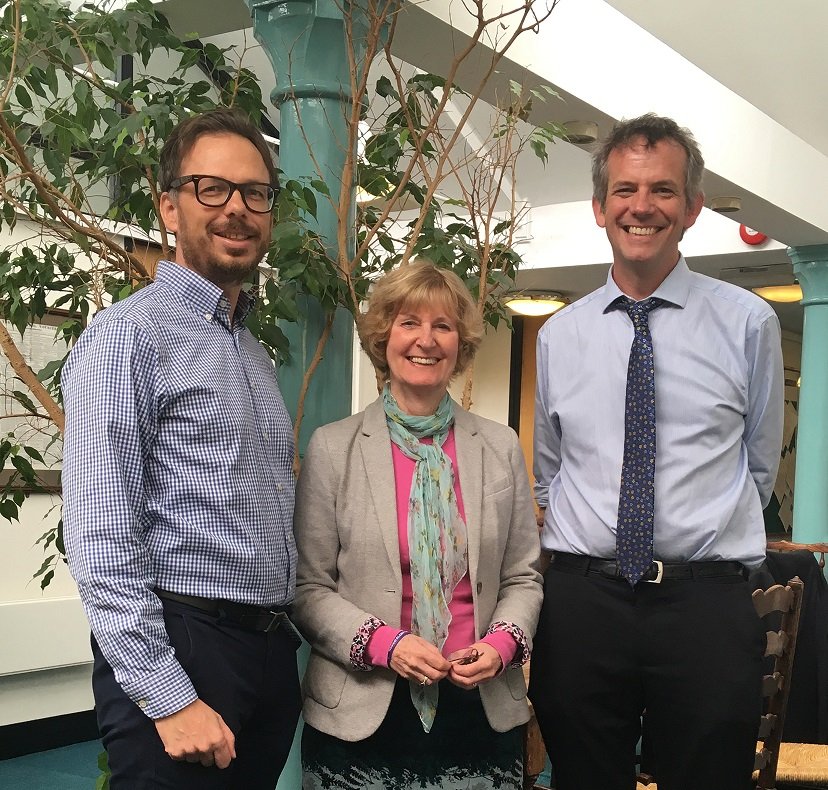
For over 30 years, Professor Dame Margaret Whitehead and her colleagues in Liverpool have been pioneering research on tackling social inequalities in health.
Seeing trends between shorter lives and earlier onset of disability among adults and children to disadvantaged living circumstances, Professor Whitehead and her team have tackled the issue head on.
Back in 1990, Professor Whitehead identified the principles of equity and health for the World Health Organisation (WHO), leading to the development of the world-famous ‘Dahlgren and Whitehead model of the main determinants of health’ and actions to tackle health inequalities. Since then, Margaret’s work has informed the development of public health strategies of the 50 plus countries in WHO Europe.
The team contributed to the major 2014 ‘Due North’ report that aims to tackle the widening health gap between the North and the rest of England.
`Due North: the report of the Inquiry on Health Equity for the North’, was the outcome of an independent inquiry, commissioned by Public Health England and chaired by Professor Dame Margaret Whitehead, to identify actions that can reduce the gap in health between the North and South of England and between different socioeconomic groups within the North.
“The north of England has long suffered from the problem of “the north-south divide”.
Dame Margaret Whitehead
One manifestation of this is the highly visible health divide between north and south. The north suffers much poorer health than the rest of England, with lower life expectancy and earlier onset of chronic illness and disability.
“This divide masks another stark division in health: the one between rich and poor areas in every region in the country. On average, poorer groups die earlier and get sicker quicker.
“In our 2014 Due North report we outlined how organisations and communities in the north could make the best use of devolved powers to turn the tide on the unacceptable health inequalities that exist within the north and between the north and the rest of England.
“Since then, we have been actively involved in initiatives with Public Health England to take forward the research agenda stemming from the Due North recommendations.”
Professor Whitehead has been working alongside Professor David Taylor-Robinson in delivering solutions and identifying ethics to inequalities in health. David trained in paediatrics at Alder Hey Children’s Hospital and has a particular interest in contributing to knowledge exchange initiatives to improving child health.
“To improve child health and reduce inequalities, responsible agencies must implement the recommendations published in multiple inequalities reports internationally, including the Black report, the Marmot report, and our Due North report. The government must put child health at the centre of policy making and take immediate steps to reduce child poverty.”
David Taylor-Robinson
Professor Whitehead, working with Professor David Taylor-Robinson and Ben Barr, produced the first empirical evidence of:
- the reduction of health inequalities as a result of the NHS Health Inequalities Resource Allocation Policy
- the adverse mental health impact of welfare policy changes for disability-related benefit claimants
- the effectiveness of the national health inequalities reduction strategy in England
- the success of child poverty reduction strategies and impact of reversal of policy at local and national levels
Made at Uni, following on from their launch campaign highlighting the impact universities have had on people, lives and communities, released their brand new campaign, ‘Lifesavers’ in May 2019. This campaign highlights 100 universities across the UK who are saving lives and keeping us healthy through key research.
